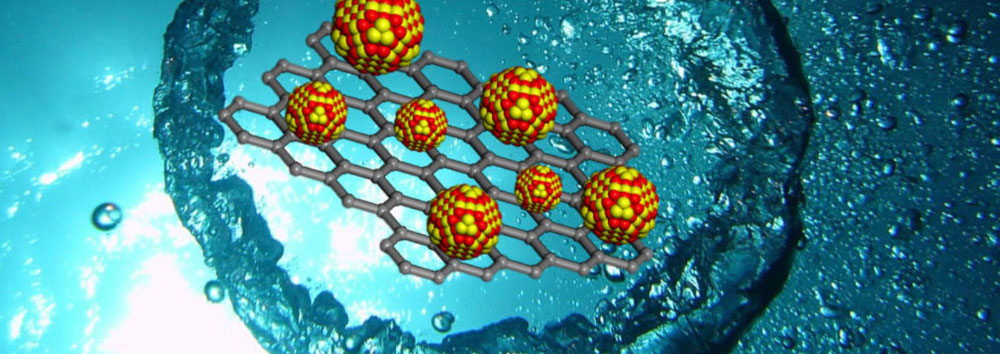Natural resources have to be utilised responsibly to meet the needs of the growing population as well as to minimise the impact on our environment. Solar energy is abundant and clean, but intermittent, and thus a number of energy storage solutions are actively being investigated. One of the most promising solutions is to store the electrical energy generated by solar cells into chemical energy by using water splitting. It is a chemical reaction in which water is broken down into oxygen and hydrogen. Scientists have been trying to develop new catalysts to facilitate the water oxidation reaction, also known as the oxygen evolution reaction (OER).
Metal-organic frameworks (MOFs) have previously been used as precursors to generate active electrocatalysts through high temperature pyrolysis. However, the pyrolysis occurs only at relatively high temperature up to 600°C under inert atmosphere, and it is highly dependent on thermal stability of MOF. Such process suffers from limited implementation in energy applications, especially whenever thermally non-stable support is used.
Now scientists from Aalto University and Zewail City of Science and Technology (Egypt) have succeeded in designing a process that for the first time occurs at room temperature under ambient conditions, resulting in exceptionally active and highly durable nanocatalyst for the oxygen evolution reaction.
About Aalto University
AALTO University is a multidisciplinary university in the fields of Science and Technology, Economics, Architecture, and Art and Design. It has 409 faculty members and a student body of 20,000, 70% of which are students in Science and Technology. AALTO University was founded in 2010 by merging three Finnish universities: The Helsinki School of Economics, The University of Art and Design Helsinki, and Helsinki University of Technology. The three schools are all leading institutions in their respective fields and in their own right. Aalto University is a multidisciplinary community where Science and Art meet Technology and Business. The university is committed to identifying and solving grand societal challenges and building an innovative future.



